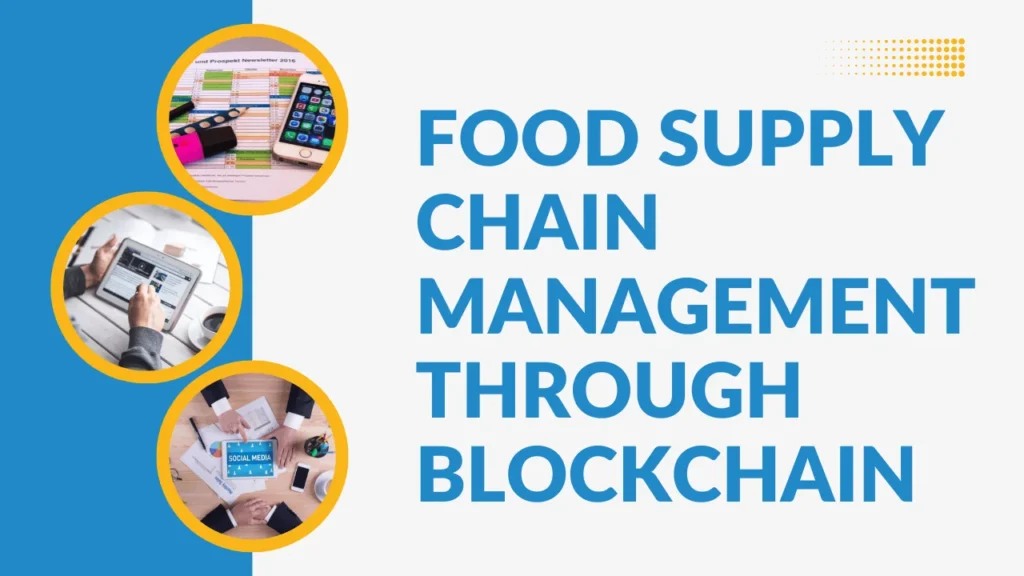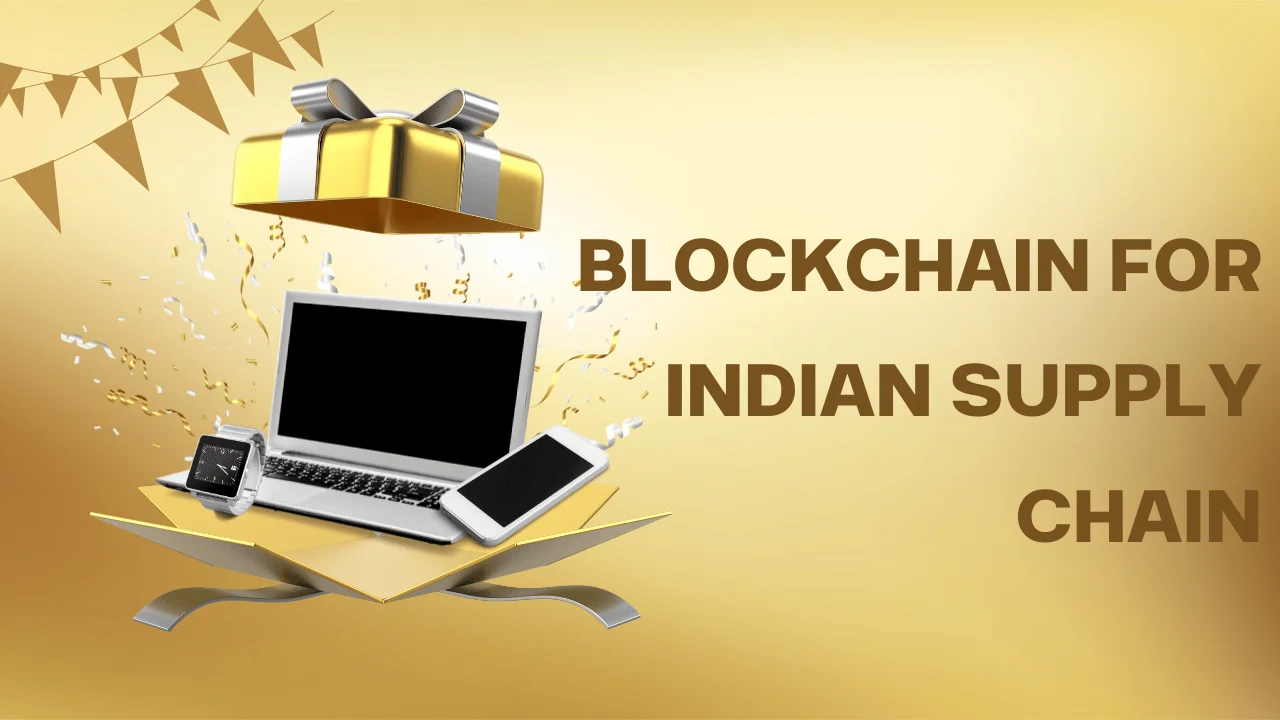When it comes to technological developments, blockchain is a lighthouse of change, especially in the Indian supply chain. This digital ledger technology is more than just a fad; it represents a paradigm change that has the potential to revolutionize trust, efficiency, and transparency in vital industries like food distribution and farming. As we explore Blockchain for Indian Supply Chain, we find a story of progress, safer food, and economic independence.
Who Stands to Benefit?
With its extensive agricultural sector and intricate food distribution systems, India’s supply chain ecosystem is primed for the blockchain revolution. Everyone from farmers to distributors to retailers to consumers plays a crucial role in this revolutionary process. Incorporating blockchain technology gives all parties involved in the supply chain unprecedented insight and control, which improves efficiency, cuts down on waste, and guarantees that food is safe to eat. This technology solves the systemic problems that have affected India’s supply chain for a long time; it’s not only for techies.
Empowering Indian Agriculture with Blockchain

Blockchain Technology in Agriculture
Blockchain technology is enabling a dramatic improvement in India’s agricultural sector, which is the foundation of the country’s economy. The security, verifiability, and integrity of data are brought to new heights by this technology. Reduce the prevalence of fraud and ensure the authenticity of agricultural products by recording, verifying, and sharing every step in the agricultural value chain, from farm to fork.
Food Traceability Blockchain Solutions
When it comes to food traceability, blockchain technology has a huge impact. Blockchain technology aids in the reduction of food adulteration and the improvement of food safety by offering an open, immutable record of the journey of food products. Indian food products gain credibility when consumers can see where they came from, how they were processed, and how long they were stored.
Blockchain-Enhanced Food Safety
Using blockchain technology in food safety systems reduces the likelihood of contamination during storage, handling, and transportation. This approach serves to safeguard the general populace’s health while simultaneously elevating the profile of Indian food exports, which in turn creates chances for expansion into other markets.
Reducing Food Losses with Blockchain
Every year, India loses a mind-boggling amount of food because of supply chain inefficiencies. The use of blockchain technology directly tackles this problem by making the entire supply chain more transparent and accountable. More food makes it to market, which helps with food security, and food losses go down significantly as a result.
Improving Indian Food Supply Chain Efficiency
Inefficient procedures and a lack of communication between parties in India’s food supply chain reduce its efficiency. Blockchain technology streamlines operations and reduces delays by introducing automation and real-time data sharing. By removing the need for human intervention and automating the execution of transactions and agreements, smart contracts streamline the entire supply chain process.
Food Supply Chain Management through Blockchain

Secure Food Movement
There are many obstacles to overcome when transporting food products across India’s enormous landscape. Thanks to blockchain technology, all transactions and movements are recorded securely and can only be accessed by authorized parties. The efficient and secure transportation of food products across the nation is made possible by this degree of openness and protection, which reduces the likelihood of loss, tampering, and theft.
Solutions Food Quality Assurance
When it comes to food, quality control is king. Because blockchain technology creates an irrefutable record of certifications and quality checks, it becomes much easier for businesses to uphold standards and for customers to have faith in the food they buy. Regulatory compliance is made easier and more efficient with this system.
Cold Storage Blockchain Applications
Because blockchain technology allows for the real-time monitoring of storage conditions, its integration with cold storage solutions has the potential to greatly increase the shelf life of perishable goods. By promptly addressing any deviations from the ideal conditions, spoilage and waste are minimized.
Post-Harvest Loss Reduction
In order to decrease post-harvest losses, blockchain technology is essential because it allows for better supply chain planning and management. Reduce losses and increase profits with accurate, real-time data that stakeholders can use to make informed decisions about storage, transportation, and market timing.
Blockchain Logistics for Indian Agriculture
Transporting food and other agricultural goods is a complicated and frequently inefficient process. By creating an immutable ledger of all logistics-related transactions, blockchain technology streamlines the management of logistics processes. All along the supply chain, this openness improves communication and cooperation among logistics providers, which cuts down on mistakes and wasted time and, in the end, saves money.
Transparency in Food Distribution
Inefficiency and lack of transparency have long plagued India’s food distribution network, which is defined by complicated logistics and a number of intermediaries. With blockchain technology, an unprecedented level of transparency is achieved. By making all transactions and transfers public on a blockchain, we can increase trust in the supply chain and decrease the possibility of disputes. By being so open and honest, we can reduce the chances of food fraud and diversion and make sure that products are distributed fairly.
Smart Contracts for Agricultural Logistics
A “smart contract” is an agreement whose terms are encoded in code and can be executed automatically. When applied to the logistics of agriculture in India, smart contracts streamline the supply chain by automating payments, certifications, and receipts. Improved agricultural logistics are the result of less paperwork, faster transactions, and less room for human mistake made possible by this automation. To ensure prompt and equitable compensation, a smart contract could, for instance, immediately trigger the payment of a farmer upon confirmation of a delivery.
NFC and IoT in Indian Food Supply Chain
To further improve the food supply chain in India, blockchain technology is being supplemented by Near Field Communication (NFC) and the Internet of Things (IoT). In order to keep food items in the best possible condition while they are in storage or transit, Internet of Things devices can track and report on environmental factors like temperature and humidity in real time. A further level of trust and accountability is added when this data is combined with blockchain, making it immutable and verifiable. Conversely, near-field communication (NFC) tags make it easier for both buyers and sellers to check the legitimacy and quality of food items by providing a safe and simple method to access product details and tracking records with a simple tap.
With the help of these technologies, the Indian supply chain is improving in all areas: efficiency, transparency, and responsiveness to producers, distributors, and consumers.
For More Exploration visit: Blockchain Investment Opportunities India: An Ultimate Guide
Conclusion
Blockchain has enormous potential to transform the Indian supply chain. Blockchain technology not only solves existing problems but also creates new ones by encouraging openness, efficiency, and trust. A stronger, more dependable, and more resilient supply chain will be able to sustain India’s economic growth and guarantee food security for its people as the country keeps embracing this technology. Thanks to Blockchain for Indian Supply Chain has a promising future that could enhance in a golden age of economic growth and social progress.

Brandy Stewart, an enchanting wordsmith and seasoned blogger, weaves compelling narratives that transport readers to uncharted territories. Infused with perceptive viewpoints and dynamic storytelling, Doris exhibits a command of language that enthralls both hearts and minds, leaving a lasting mark on the literary panorama.

